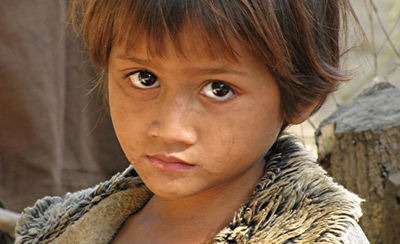Innovative Self-Assessment to Improve Care for Children
 Globally, many children are separated from their families and placed in alternative--sometimes inadequate—care, such as large-scale residential institutions or unregulated services. This may happen when child abuse or neglect exists in a family, when living in poverty, or when parents are absent, sick, or disabled. The UN Guidelines for the Alternative Care for Children sets forth guidelines for countries in ensuring children in alternative care are safe and free from harm. Where countries are in terms of implementing these guidelines varies.
Globally, many children are separated from their families and placed in alternative--sometimes inadequate—care, such as large-scale residential institutions or unregulated services. This may happen when child abuse or neglect exists in a family, when living in poverty, or when parents are absent, sick, or disabled. The UN Guidelines for the Alternative Care for Children sets forth guidelines for countries in ensuring children in alternative care are safe and free from harm. Where countries are in terms of implementing these guidelines varies.
Recently, the Displaced Children and Orphans Fund (DCOF) of the United States Agency for International Development (USAID) asked MEASURE Evaluation, which is funded by USAID, to draw on its expertise in monitoring and evaluation (M&E) to build capacity of four country teams to assess their own efforts to address and monitor reforms for alternative care for children. The countries DCOF selected were Armenia, Ghana, Moldova, and Uganda.
The assessment approach MEASURE Evaluation developed and helped each country implement was innovative in a number of ways. First, it involved co-development of the tool with government representatives from each country and its stakeholders by engaging country teams in a detailed review of the tool during a multi-country workshop. Following the workshop, MEASURE Evaluation worked with each country team to adapt the tool for local context.
Another innovative aspect was that MEASURE Evaluation designed the assessment as a holistic, systems assessment of the areas of care (e.g., prevention of separation, foster care, kinship care, adoption, and others). Our framework posits that you need to invest in multiple system components in order for alternative care to work. For example, to adequately assess and address foster care, a country needs to examine its leadership and governance, financing, M&E, workforce, service delivery, and social norms.
Next, we facilitated a self-assessment approach whereby each country conducted the assessment through participatory workshops with between 25–60 experts from multiple ministries, donors, and civil society in each country. Consensus, built through group debate, resulted in agreement and accountability on the areas of government systems that required further improvement. By using a self-assessment approach, we hope that the governments will have more buy-in of assessment findings and it will encourage them to identify their own approaches to address emerging issues.
The assessments revealed new areas of importance for each country. For example, areas for improvement across countries include quality service standards, monitoring of quality standards, a strategy for ensuring proper costing to ensure adequate financing of services, and the need for increasing the demand for information and strengthening data systems—particularly related to case management. Countries have begun addressing recommendations and in Armenia, the assessment tool has already been revised for use of another area of social reform.
MEASURE Evaluation continues to facilitate collaboration and communication across the four countries as we help them develop plans to address priority needs and to develop improved indicators for routine monitoring of alternative care.
For more information












